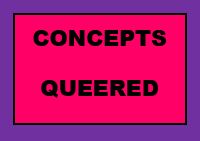“Hope is the thing with feathers that perches in the soul – and sings the tunes without the words – and never stops at all.” – Emily Dickinson
I love this quote. Hope is intrinsic to the human condition. I cannot imagine a human race without the splendid thing known as hope. I ended my last post with hope because hope is a prime antidote to fear. Hope can help to quell our fears. It is a positive emotion that can make people happy, exhilarated, more certain and less anxious. My life hasn’t been the easiest for a variety of reasons. But it is a life with a lot of meaning and a lot of searching for meaning, which I see as infinitely more important than mere happiness. Hope has been the thing which has enabled me to get through all the adversity. In this post I would like to cover hope as defined by four different things: 1) hope as an antidote to fear 2) hope as a teacher of history 3) hope as a way to dream and envision the present and the future 4) hope as a motivator to act and fight.
Hope is an antidote to fear: Fear-mongering is the reality of our time. This is particularly true for people from marginalized groups. We have become subject to the forces of those who wish to make us constantly afraid. Fear is an immobilizing force. Hope is the thing that helps to pull us out of the doldrums. It works against fear by showing us the positive things that are happening and that are possible. While I think fear is a basic human emotion, I do not think we were meant to spent our whole lives immersed in fear. Hope is what we should be immersed in. The next time you feel afraid about something, consider asking yourself: how can I find hope in the face of this fear? There is no scarcity of hope; it is plentiful and abundant.
Hope teaches about history because it forces us to consider the lived experiences of our ancestors, both those by blood and otherwise. We all stand on the shoulders of giants. People in the past faced enormous challenges. People in the present face similar and different problems. We can learn about family members and activist figures and use them as a source of hope. Many members of my family in the past faced extreme poverty. I marvel at the fact that they were able to move forward from this place of poverty to carve out working-class lives and raise families. We can look to someone like MLK who faced enormous violence, being jailed and cultural opposition and yet still managed to accomplish a tremendous amount in terms of changing laws and changing hearts and minds in the American populace. If we let it, the quest for hope can teach us about our history, and how people overcame obstacles to accomplish great things, or even to just survive in the face of poverty, violence and discrimination.
Hope enables us to dream and to envision. The world around us is not the way it has to be, and certainly is not the way it should be. We need to change the world, and that is an incredibly difficult thing to do. Hope is like fuel for the car; it makes us run. Hope helps us to dream about what has not yet been. And it helps us to envision radical alternatives to the status quo. Hope can be harnessed and used to provide a blueprint for the future. Hope is not a maudlin fantasy. It is a very real tool that stimulates our brains to discover new ways of living, of being and of inter-being. How wonderful that there is an infinite supply of hope to inspire us to fight for the dawning of a new world. Hope infuses our activism with spirituality, and I believe this is what is needed for the activism of the new millennium.
Finally, hope is a motivator to act and fight. It is not enough to dream and envision. We must then take our hopeful blueprints and transform them into concrete action. This is the stage where hope cajoles us into taking action, into fulfilling our God-given directive to be change agents and to repair the world. Tikkun olam, literally meaning “repair of the world” in Hebrew, is a concept in Judaism that encourages people to act constructively and to behave in ways that are beneficial to the world we live in. We can’t reach this aspiration if we are motivated by fear or hate. We must be motivated by hope. We must lead with love. From fighting fear, to resurrecting history, to producing a blueprint and pushing us into action, hope is an entity that will transform us and transform the world simultaneously.
I leave with a question: How can we harness the power of hope today to take one small, concrete step to improve the world for someone else, to be a hopeful blessing to them?
